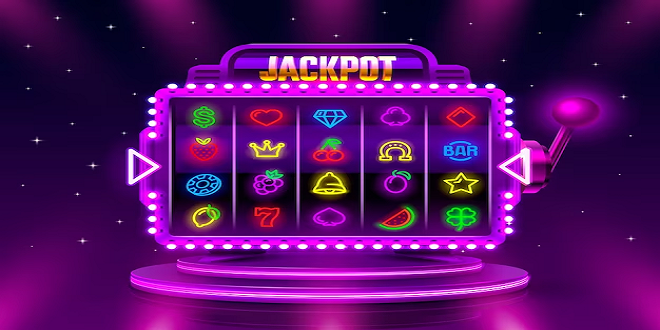In the era of smartphones and mobile gaming, many of us have found solace and entertainment in our favorite mobile games. Whether it’s the thrill of strategic battles, the excitement of solving puzzles, or the immersive storytelling of role-playing games, these digital experiences have become an integral part of our lives. Have you ever dreamt of creating your own mobile game, bringing your unique ideas and concepts to life?
In this blog, we’ll explore the fascinating journey of turning your favorite mobile game into a reality through game development.
Basics of Game Development
Before diving into the world of game development, it’s crucial to grasp the fundamental concepts. Game development involves a combination of creativity, programming skills, and a deep understanding of user experience. Most mobile slot games are built using programming languages like C#, C++, or JavaScript, along with game development engines such as Unity or Unreal Engine. These engines provide a platform to design, develop, and deploy games across various platforms.
Identifying Your Game Concept
Start by identifying the core concept of your favorite mobile game. What makes it unique? Is it the gameplay mechanics, the storyline, or the characters? Analyze the elements that resonate with you and consider how you can incorporate similar aspects into your own game. It’s essential to strike a balance between inspiration and innovation – infuse your personal touch while staying true to the essence of what makes the original game captivating.
Creating a Game Design Document (GDD)
A Game Design Document (GDD) is a blueprint that outlines every aspect of your slot online game. It serves as a guide for both you and your team (if you have one) throughout the development process. The GDD should include details such as the game concept, mechanics, characters, levels, and visual style. Additionally, outline the target audience, platform(s), and monetization strategy if you plan to launch your game commercially. The GDD provides a clear roadmap, helping you stay focused and organized during development.
Learning Game Development Tools
To turn your game concept into reality, you’ll need to familiarize yourself with game development tools and software. Unity and Unreal Engine are popular choices, offering user-friendly interfaces and extensive resources for beginners. These engines provide a visual development environment, allowing you to create games without delving too deep into coding initially. Online tutorials, forums, and community support can aid in mastering these tools, even if you have limited programming experience.
Coding and Programming
While visual development tools can help you get started, having a basic understanding of coding will significantly enhance your ability to customize and optimize your game. Learning languages like C# for Unity or C++ for Unreal Engine will empower you to implement specific features, address bugs, and fine-tune your game’s performance. Numerous online platforms offer coding courses tailored for game development, enabling you to acquire the necessary skills at your own pace.
Designing Engaging Gameplay
The heart of any mobile slot game lies in its gameplay. Consider what makes your favorite game enjoyable and try to replicate or enhance those elements in your own creation. Focus on creating engaging mechanics, intuitive controls, and a rewarding progression system. Regular playtesting with friends or a small audience can provide valuable feedback, helping you refine and perfect the gaming experience.
Crafting Compelling Visuals and Audio
Aesthetics play a crucial role in the success of a mobile game. Invest time in creating visually appealing graphics that align with the theme and mood of your game. Whether you choose 2D or 3D graphics, consistency in design is key. Additionally, audio elements such as background music, sound effects, and voiceovers contribute to the overall immersion. Consider collaborating with artists and musicians to elevate the quality of your game’s visuals and audio.
Testing and Iteration
Testing is an integral part of the game development process. Regularly playtest your game to identify and address issues related to gameplay, user interface, and performance. Gather feedback from players to understand what works well and what needs improvement. Iteration is a natural part of game development, and embracing feedback will lead to a more polished and enjoyable final product.
Optimizing for Mobile Platforms
As you approach the completion of your game, it’s essential to optimize it for mobile platforms. Consider factors such as screen sizes, resolutions, and touch controls. Ensure that your game runs smoothly on a variety of devices and performs well under different network conditions. Testing on multiple devices and obtaining user feedback during this phase will help you fine-tune the mobile experience.
Launching and Marketing Your Game
Once your game is polished and optimized, it’s time to launch it into the world. Publishing platforms like the App Store and Google Play provide avenues for reaching a global audience. Develop a marketing strategy to create awareness about your game, utilizing social media, influencers, and online communities. Engage with potential players, share behind-the-scenes content, and build anticipation leading up to the launch.
End Note
Turning your favorite mobile game into a reality is an exhilarating journey that combines creativity, technical skills, and perseverance. By understanding the basics of game development, creating a comprehensive game design document, learning relevant tools, coding, designing engaging gameplay, crafting compelling visuals and audio, testing, optimizing for mobile platforms, and effectively launching and marketing your game, you can transform your vision into a tangible and enjoyable gaming experience for players around the world. Embrace the challenges, celebrate the successes, and enjoy the satisfaction of bringing your favorite mobile game to life.
 Pagalsogns.me
Pagalsogns.me



